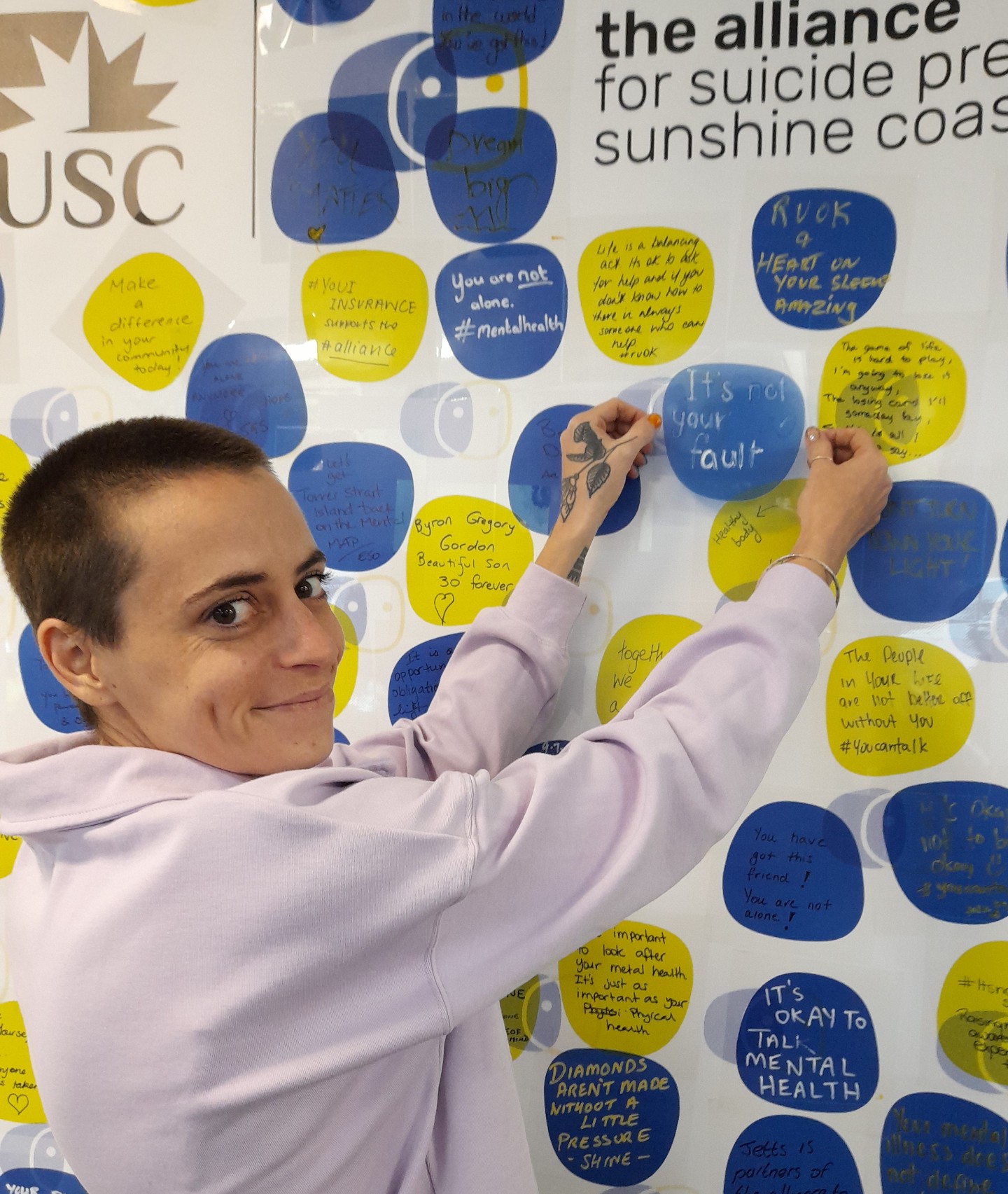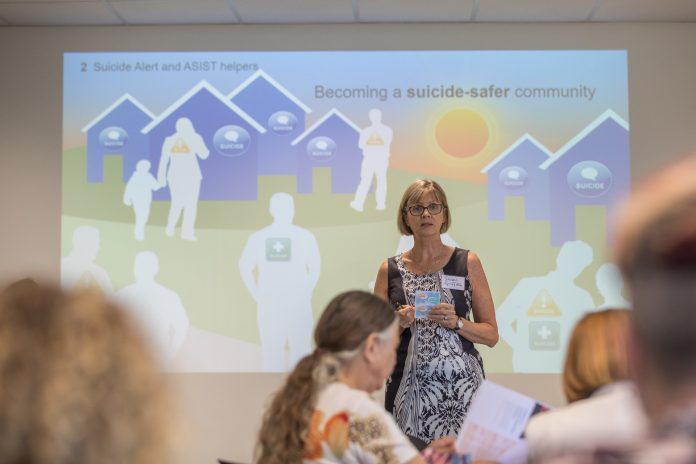“The most confronting and sensitive questions can sometimes save a life.”
That’s one of the key messages participants will learn from the free courses being offered by The Alliance for Suicide Prevention – Sunshine Coast.
Course participants are taught the skills to identify the often-subtle signs of when someone may have suicidal thoughts, how to gain the confidence to ask them what’s going on, and effective ways to support them to seek help.
Suicide alertness course graduate Joe Surace said the training was worthwhile for him.
The most important thing he learned was “to just straight-up ask people if they are thinking about suicide-type thoughts, if you have concerns about them”.
Mr Surace decided to attend the course a few years ago because he had an “extremely horrible” experience dealing with cancer: the treatment, rehabilitation and side effects that followed.
These days, the Buddina resident is a big advocate for cancer survival and even works part-time at a cancer charity.
In the role, Mr Surace said he came across many people who were doing it tough fighting cancer and sometimes they thought about just giving up on life.
“I thought that doing the course would better help me understand and help people who might be having suicide thoughts, and if so, intervene before they go through with it,” he said.
The Australian Bureau of Statistics Causes of Death yearly report for 2020 reveals 32 intentional self-harm (suicide) deaths on the Sunshine Coast that year.
But the UniSC Thompson Institute engagement officer Louise Pemble said suicide numbers in the region fluctuated yearly.
“It was generally considered official figures under-report the real rate, as not every death can be officially proved as intentional,” Ms Pemble said.
She said course feedback showed many participants were reluctant to ask a person if they were thinking of suicide until learning the skills to identify signs and inquiring in a way that was authentic for them.
The training includes practising asking the question of another participant.
“This is a huge barrier for many, but once done, participants report they are more likely to use it in future,” she said.
Ms Pemble shared an instance when a participant, the day after she did the training, was asked by her neighbour to speak to her 12-year-old son, who was suicidal.
“She was able to do so, and refer him to help, which shows the potentially life-saving benefit of the training,” Ms Pemble said.

Ms Pemble revealed that some of the subtle signs of someone contemplating suicide usually included changes in behaviour, appearance or mood.
“If they are usually up and they appear down, or usually serious and they appear overly animated, these are signs something may not be right,” she said.
“Giving away possessions, including pets, is another sign to check for suicidality. Life changes such as relationship breakdown, financial stress and legal issues can also cause distress.”
The Alliance has trained nearly 2000 people in suicide-prevention workshops, offering safeTALK, ASIST and Start courses, monthly online or face to face.
safeTALK is a free half-day training in how to identify someone who may be thinking of suicide and refer them to help offered monthly.
ASIST is a two-day training in suicide safety planning for $80, while Start is a free 90-minute online suicide awareness training.
While we can all be trained to spot the signs, Ms Pemble said some people were extremely good at masking pain.
“If you have lost someone to suicide, please don’t blame yourself,” she said.
“Good help is available on the Sunshine Coast for anyone impacted after a suicide, particularly standbysupport.com.au”
Discussions around suicide can also help ease the stigma around the societal issue.
“It was once a crime, and seen as a moral failing, so people feeling suicidal are reluctant to discuss their feelings,” Ms Pemble said.
“Stigma is the biggest barrier to seeking help, so we must as a community tackle suicide stigma if we want to save more lives.”
To register for all three courses, visit The Alliance.org.
If you’re in an emergency or someone is in immediate danger, call 000. If you or anyone you know needs support, call Lifeline on 13 11 14, Kids Helpline on 1800 55 1800 or visit Lifeline.org.au





